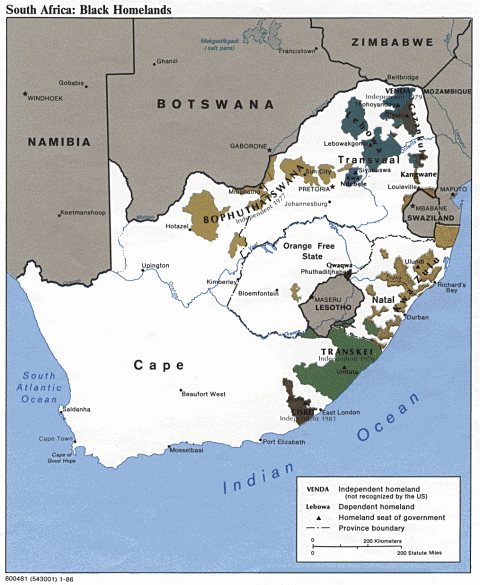The Enlightenment (or Aufklaring) of the 18th century, which introduced the age of reason (or the modern era) radically changed the way Western Civilization thought about sources of authority, religion, science, social structures, and politics.1 The most notable negative impact of the advocacy of man’s reason as the absolute authority and source of truth was on the Christian Church’s view of Scripture. The Reformation’s principle that the Bible is the inspired Word of God, and the absolute authority in all matters it addresses, was abandoned by liberal rationalist thinkers in favor of higher-critical views of divine revelation. This man-centered approach to the study of theology created a very clear schism between Bible-believing (conservative) Christians and liberal rationalists, with the latter becoming the overwhelmingly dominant worldview in the West since the late 19th century.
The Enlightenment philosophy, however, also had a major influence on how the Western world viewed the social order. For a great part of Western Europe’s history prior to the Enlightenment, the Roman Empire was the supreme ruler of the continent. Prior to the Christianization of the Germanic tribes, they established stable (although pagan) kingdoms in Northern Europe during the early Middle Ages.2 Despite their imperialist tendencies and their subjection of the Germanic tribes of the North, apart from adopting the Roman faith and paying in different forms of taxes, the Germans had the freedom to live under their own decentralized governments and share their geographical entities with their kinsmen. The pre-modern Roman Empire can then be considered as a truly multi-national, multi-ethnic empire, with Germanic, Scandinavian, Gothic and Anglo-Saxon tribes enjoying much cultural independence, despite not having complete political independence. This was especially true after no central power replaced Charlemagne’s reign in 814 when it collapsed, and people lived in smaller political units or kingdoms,3 along with establishing an aristocratic land-owning class and a dependent peasantry. Despite all the negative elements associated with the misuse of this feudal system by some rulers, familial ties were very strong back then. It also much more closely resembled the Old Testament view of society than the destructive and unpractical philosophy of egalitarianism which would later come out of the French Revolution and become a distinctive mark of modernist rationalism.
The structured 19th century European ethnic nationalism, which originally came out of the Enlightenment, can undoubtedly be considered a good thing in a certain sense; however, because it was in most cases founded on secular humanism, rather than biblical grounds, it necessarily led to a feeling of inherent racial/ethnic superiority that once again led to imperialism. Europeans founded colonies in Africa, and many considered Africans inferior from the rationalist perspective. This view, however, was incompatible with the egalitarian worldview that was prevailing at the time, and the bizarre consequence was that non-Europeans needed to be uplifted to the Western standards of civilization, which could not be achieved unless Africans were Westernized and assimilated into Western society. So, humanist-based ethnic nationalism naturally had to make way for civic nationalism (or liberal nationalism), which is considered less discriminating. The principle of civic nationalism is that of jus soli (law of the soil) for granting citizenship in the country, deeming all persons born within the integral territory of the state citizens and members of the nation, regardless of their parents’ origin.4 Kinism thus had to make way for Imperialism and amalgamation. Europeans argued that they couldn’t take care of their own people first anymore, since their own people were much better off than foreigners. In order to provide the Western world’s economic opportunities for non-Westerners, not only mass immigration from the third world had to take place, but also cultural assimilation of the foreigners into the established white population. This intensified dramatically after World War II and eventually grew into globalism, where the interests of the entire world was placed above those of individual nations. This is the logical consequence of liberal nationalism.
One example of the negative impacts of the prevailing ideology of liberal nationalism during the 20th century were the ethnic nationalist principles of the National Party’s policy of Separate Development, as implemented by Prime Minister Hendrik Verwoerd during the 1960s. It could not be tolerated by most of the world, especially in light of the Civil Rights movement that achieved so much of its ideal in the United States during that time. What the West considered as an unfair homeland policy of the National Party, was in essence a foreign policy.
“Apartheid” was a political system originally developed by British imperialist Cecil John Rhodes and supported by liberal Afrikaner leader Jan Smuts. The system was designed to implement a ius sanguinis principle concerning political rights and marriage laws in traditionally white areas. Thus, only Europeans could vote in elections, and marriage laws prohibited some forms of miscegenation. Blacks, coloureds, and Indians did receive some political and territorial freedoms in this system, which was the norm in South Africa during most of the first half of the 20th century; but they were discriminated against in some areas, due to some white supremacist and imperialist beliefs of some white leaders, such as Rhodes. In 1957, however, Prime Minister Hendrik Verwoerd implemented a political system called “Separate Development,” in which he treated ethnic relations as an international rather than a homeland policy. Under his government, blacks received their own homelands and governments and had a right to vote and appoint their own leaders, representative of their ethnicity, as well as develop their own infrastructure in their nation-states, with the financial and educational aid of the National Party government. White taxpayers under Verwoerd’s National Party government contributed heavily to the economic development of the black homeland; many houses, schools, hospitals and universities were built. The fruits of this excellent policy of Verwoerd are clear from various facts, including the fact that blacks in “South African homelands” had the highest literacy rate of all the black people on the continent.5 The National Party’s great success in bringing quality education to the black people in South Africa was even admitted by its most hardened liberal enemies, like UNESCO. Coming from a Biblical Kinist perspective, Verwoerd simply applied Christ’s command of Matthew 7:12, i.e. to do unto others as you want them to do to you, to his political philosophy. Yet from the globalist perspective of the liberals in Europe, who drew national-borders without taking the ethno-linguistic make-up of the different geographical regions of the continent into consideration, the artificial national-borders were final and South Africa’s actions in separating blacks and whites were evil even if it uplifted blacks.

Pre-1994 Black Homelands in South Africa
The propaganda against the system of Apartheid and pressure put on the National Party government by internationalists eventually led to the system’s downfall in 1990. Similarly, the Civil Rights movement in the United States in the 1950s and 60s can also be considered a direct consequence of civic nationalism.
So, in every sphere of life, modernist rationalism can be described as just yet another attempt from man to overthrow God’s sovereignty, His providence, and His ordained social order. It is in essence a return to Babel, where man attempted to make himself God. Modernist rationalism does this by rejecting the absolute authority of divine revelation, attempting to be sovereign himself, rather than acknowledging God’s sovereignty. First and foremost, liberal modernists did this by attacking the authority of Scripture, then by attacking the authority of God’s providence. This was done by constant attempts, initially through civic nationalism (a worldview nowhere to be found in Scripture), which led to the “global village” ideal of the 21st century, which is not very different from the ideal of the Tower of Babel. Thus, it is but an old sin recurring again in a contemporary form, born out of man’s sinful nature and his desire to deify himself; in observing this, we can only confess with the prophet that “The heart is deceitful above all things, and desperately wicked; who can know it?” (Jer. 17:9 – NKJV). And, as the Church has always in the past done in difficult circumstances, where the truth is being oppressed from all sides, knowing that we are incapable of changing the world ourselves, and that men’s eyes can only be opened through the regenerating power of the Holy Spirit, we can and must simply stand our ground and hold on to the promise of Jesus Christ in Matthew 10:22: “And you will be hated for My name’s sake. But he who endures to the end, will be saved.”

Footnotes
| Tweet |
|
|
|





